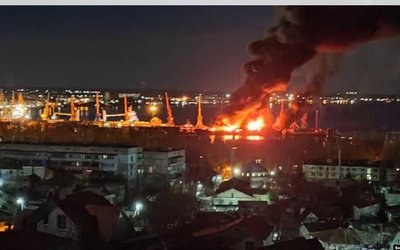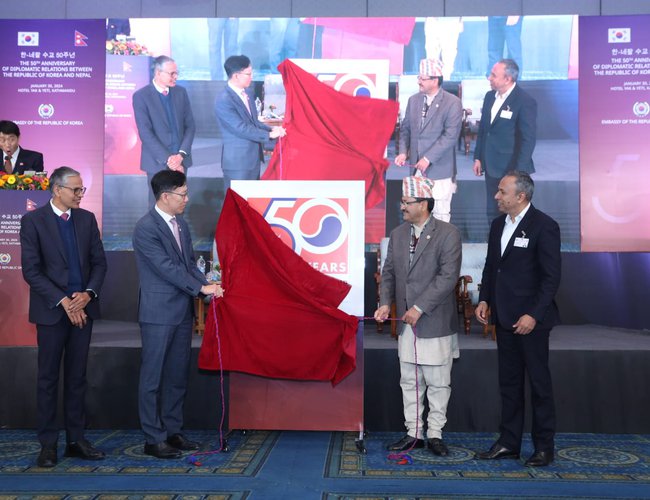
Nepal and Korea are celebrating fifty years of diplomatic relations. During this time, the two countries have made many significant partnerships.
The Embassy of the Republic of Korea in Nepal has recently published a book titled 'You Can Also be an Owner' (Tapati Pani Malik Bann Saknu hunch), written by Shiva Prasad Pokharel. The book is a testimony of 26 Nepalese migrant workers who returned from Korea and are now contributing to transforming Nepal's economy through the establishment of SMEs.
In the forward of the book, Korean Ambassador to Nepal, Park Tae-Young, who himself was a family member of a Korean migrant worker in the Gulf in the 1960s, shares his painful thoughts about his family when communication systems were not as advanced as they are today. Despite the pain experienced by his generation, the Ambassador writes about how his father used his skills and earnings to help transform Korea and make it prosper later in life.
The book tells the stories of unskilled Nepali migrant workers who worked in Korea and later contributed to Nepal's prosperity upon their return. This highlights the 50-year relationship between the two countries. While EPS is one sector supported by Korea, it also serves as an important area for transferring knowledge and wealth to Nepal, which can lead to broader changes back home.
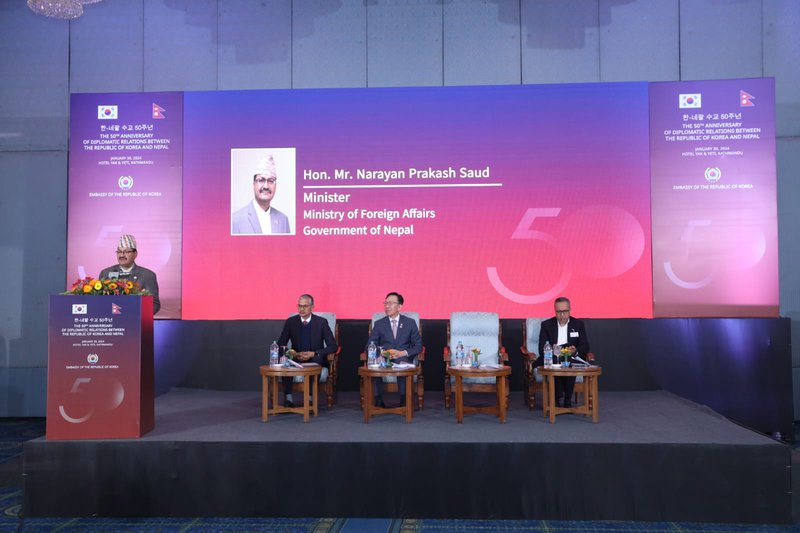
The Embassy of the Republic of Korea in Nepal recently published a book titled 'You Can Also be an Owner' (Tapati Pani Malik Bann Saknu hunch), written by Shiva Prasad Pokharel. The book is a testimony of 26 Nepalese migrant workers who returned from Korea and are now contributing to transforming Nepal's economy through the establishment of SMEs.
The book's foreword features Korean Ambassador to Nepal, Park Tae-Young, who shares his personal experience as a family member of a Korean migrant worker in the Gulf during the 1960s. He reflects on the challenges his family faced due to limited communication systems at the time. Despite the hardships, the Ambassador highlights how his father utilized his skills and earnings to contribute to Korea's transformation and eventual prosperity.
The book tells the stories of Nepali migrant workers who worked in Korea without any skills. These workers later contributed to Nepal's prosperity upon their return. The book highlights the 50-year relationship between the two countries. Korea supports EPS, which is one sector that serves as an important area for transferring knowledge and wealth to Nepal. This can lead to broader changes back home.
Nepal and Korea.
This book stands not only as a testament to their individual journeys but also as a powerful symbol of the fruitful outcomes of bilateral employment cooperation. The 26 businessmen featured in this book are living proof that the exchange of skills and experiences can yield personal growth and substantial contribution to the economic landscape of Nepal.”
These 26 business owners are heroes to create jobs in Nepal and to inspire other returnees to have a dream. Each success of 26 heroes also started from their dream. Their stories exemplify the spirit of bilateral employment cooperation, demonstrating that collaboration between Korea and Nepal can be a powerful catalyst for personal and economic development. Thanks for your contribution for this book and joining today here
Nepal and Korea, despite their geographic distance, shares many historical and cultural similarities. More than 100,000 Nepalese have worked in Korea under EPS, and over 30,000 Koreans visit Nepal annually for trekking in the Himalayas and pilgrimage to Lumbini, the birthplace of Buddha. Many young Nepalese people are learning Taekwondo and enjoying K-Pop.
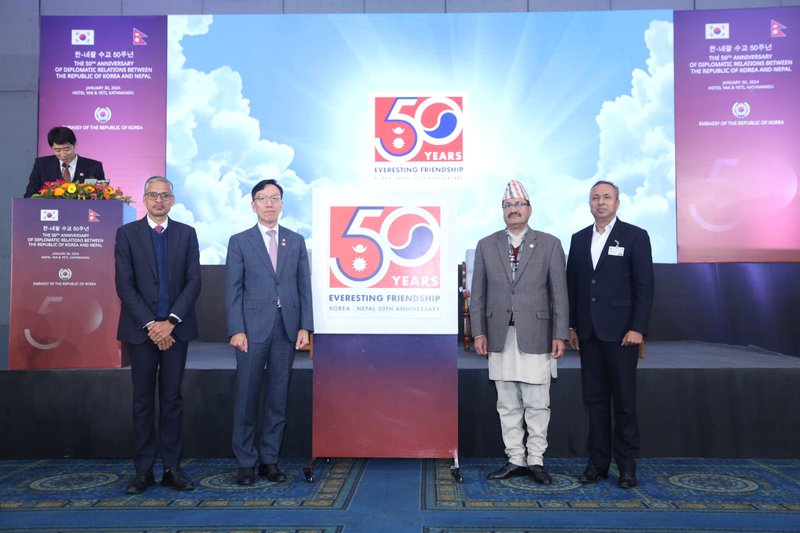
Therefore, the recent high-level political meeting was highly valuable. The meeting between South Korean President Yoon Suk-yeol and Prime Minister Pushpa Kamal Dahal Prachanda on September 21, 2023, during the United Nations General Assembly was remarkable.
They held a bilateral summit in New York to discuss how to deepen cooperation across various domains, including Korea's investment in Nepal.
Korean investment in Nepal
In the last fifty years, the Republic of Korea has made significant strides in technological innovation and economic development, positioning itself as the 13th largest economy in the world. The rise of South Korea is also greatly benefiting Nepal and Nepalese people, despite lackluster progress.
South Korea has made remarkable economic progress with globally renowned private sector companies such as Samsung, LG, and Hyundai. As a result, Korean investment has also increased in Nepal, particularly in various sectors including hydropower.
Nepal aspires to become a leading hydropower exporter to India by generating over 27,000 MW with zero emission targets by 2045. Therefore, the investment by the Korean private sector in the 216 MW Upper Trishuli-1 is highly significant.
The project has made almost 40% progresses as of the end of January 2024, with a total estimated cost of $647.4 million to be financed entirely by foreign capital.
The Nepal Water and Energy Development Company (NWEDC) constructed this hydropower project with shareholders including Korea South East Power Company (52%), Daelim Industrial Company (16%), Kyeryong Construction Industrial Company (10%), International Finance Corporation (12%), and the local Nepalese partner Bkesh Pradhanang (10%). It is the first private company to invest in the largest hydropower project with an operation target of 2027.
The appointment of Kul Man Ghising as MD in 2018 made all the difference for this project, which had been delayed for years due to various reasons. Nepali partner Bikesh Pradhanang made enormous efforts to convince Nepali officials about the project's importance in Nepal's energy sector.
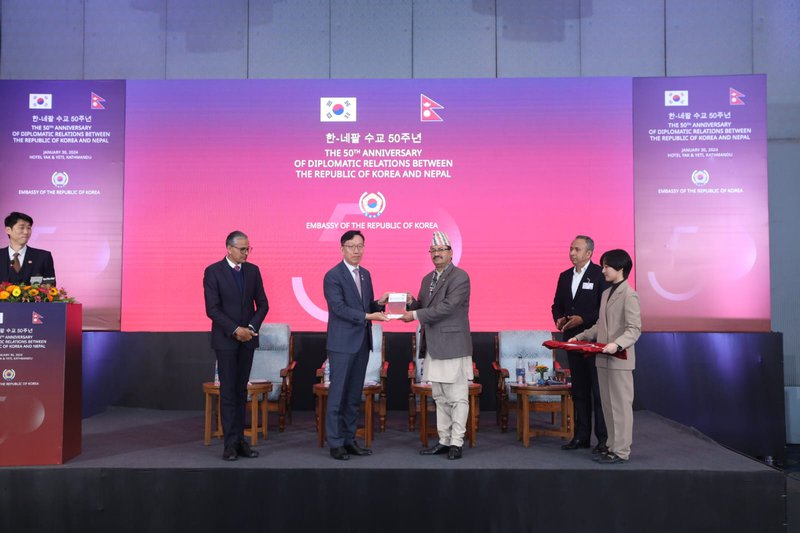
Additionally, the Korean government and companies completed the 14.8 MW Modi Khola Hydropower Plant in 2000 and the 30 MW Chameliya in 2018. The 132 kV transmission line constructed under Chameliya has greatly contributed to the livelihood of Sudur Pashim Province.
In a recent program, the Ambassador of Korea to Nepal, Park Taeyoung, assured Nepal that Korea will continue to cooperate in realizing Nepal's hydropower development potential.
As Nepal and South Korea celebrate the 50th year of their diplomatic relationship, the friendly relations between Nepal and Korea are deepening further with economic, cultural, and religious linkages.
Foreign Minister NP Saud expressed pride in commemorating the 50th anniversary of diplomatic relations between Nepal and the Republic of Korea. He emphasized the deep relationship and understanding between the two countries. Saud also acknowledged South Korea as Nepal's best partner and friend, which has consistently supported Nepal's economic development since the establishment of diplomatic relations.
During the program commemorating the 50th Anniversary of Diplomatic Relations between the Republic of Korea and Nepal, and the Launching Ceremony of the Commemorative Logo and Book on Success Stories after the EPS program, Foreign Minister Saud stated that Nepal always gives high priority to its relations with South Korea.
He acknowledged that the financial and technical support provided by the Republic of Korea has helped Nepal improve the living conditions of its people. He thanked the government and people of the Republic of Korea for their generous support.
Minister Saud highlighted the importance of the employment provided by Korea to Nepali workers under EPS. He also emphasized the contribution of Nepali returnees to Nepal's economic progress. Minister Saud urges Korean investors to invest in Nepal.
During the event, Minister Saud, the Chief Guest, praised the close cooperation between the two countries in various fields, such as the economy, employment, education, and people-to-people exchanges since the establishment of diplomatic ties in 1974. He also expressed his hope for further cooperation between the two countries in the future.
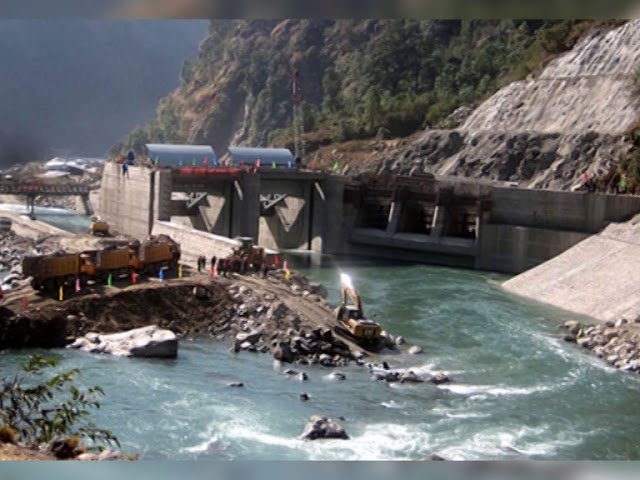
Kewal Prasad Bhandari, the Secretary of the Ministry of Labour, Employment, and Social Security, stated that Korea is an attractive market for Nepali migrant workers in terms of safety and earnings. He noted that Korea has made significant progress in the last 50 years, establishing itself as a country with highly skilled workers and a leader in the technology sector.
Secretary Bhandari also mentioned that the two countries have undergone many changes and made significant progress in the last fifty years. Many large Korean companies are investing in Nepal, which is contributing to economic prosperity and progress, as he stated.
It is an honor to be here today for the launch of the 50th-anniversary logo and slogan commemorating the diplomatic ties between the Republic of Korea and Nepal. We are also launching a book about the inspiring success stories of businessmen who worked in Korea and returned to Nepal to start their own businesses.
Our two countries share a significant history. This milestone is a testament to the enduring strength of our bond.
Fifty years ago, our countries began a journey of friendship, understanding, and collaboration. Today, as we reflect on the past five decades, we can be proud of the progress we have made together. The last 50 years have been a story of shared values, mutual respect, and a commitment to building a better future for our people,” said the ambassador.
Park Taeyoung announced that the Embassy will organize various programs in cultural, economic, and development areas to commemorate the 50th anniversary of diplomatic ties in 2024. He expressed that mutual cooperation programs will deepen the close ties and elevate the bilateral relationship between the two countries.
Mooheon Kong, Country Director of KOICA Nepal, highlighted KOICA's support for Nepal's development. He presented how KOICA has been supporting Nepal’s development endeavors.
Nepal and the Republic of Korea share many commonalities, including the religious aspect of Buddhism. The relations between the two countries have remained deep and stable over the last five decades. Since the establishment of diplomatic relations fifty years ago, the Republic of Korea has remained a dependable friend to Nepal, providing all necessary support for economic development.
South Korea has experienced remarkable economic development and established itself as a hub of technological innovation. Nepal has benefited greatly from Korea's progress.
Over 100,000 Nepalese workers have already worked in South Korea and returned to Nepal. The Republic of Korea is one of the largest foreign investors in Nepal, investing in the hydropower and technological sectors.
For 15 years in a row, the Korean government has designated Nepal as a priority cooperation country for development in vocational training, health, agriculture, and ICT. KOICA has implemented 157 development projects and provided degrees or training opportunities to around 2,000 Nepalese people over the past 30 years.
Nepal has also received significant foreign investment from Korea, with Samsung Electronics operating a state-of-the-art TV factory since last April. A Nepalese company, in partnership with Hyundai Motors, is preparing to start Nepal's first automobile production in Nawalparasi in the first half of next year. Additionally, a Korean wig company, Mandumo, has invested in Nepal and hired 680 Nepalese women. To attract more investments by Korean companies, a bilateral investment treaty with Nepal is necessary, and we are working on it.
This year, Nepal has secured the top position among Korea's 16 EPS partner nations for the first time. This year, 20,000 individuals were provided with opportunities to work in Korea. Since 2007, over 100,000 Nepalese migrant workers have worked in Korea on equal terms with Koreans. We also provide follow-up support for resettlement and start-up preparation for returning workers.
Nepal-Korea relations
The Republic of Korea and Nepal established diplomatic relations in 1974. This year, 2024, marks the 50th anniversary of their establishment.
A recently published book by the Republic of Korea on success stories after the EPS program is a testimony to how Nepalese have been learning and working in Korea, contributing to operating enterprises and SMEs in Nepal.
The high-level officials of the Government of Nepal and the Ambassador of the Republic of Korea to Nepal, Park Taeyoung, recently unveiled the commemorative logo to mark the 50th Anniversary of Diplomatic Relations between the Republic of Korea and Nepal.
The Embassy of the Republic of Korea and the Government of Nepal will jointly use the logo for programs related to Korea.
The logo celebrates the 50th anniversary of Korea and Nepal by incorporating their flags' colors and elements along with the phrase '50 Years.'
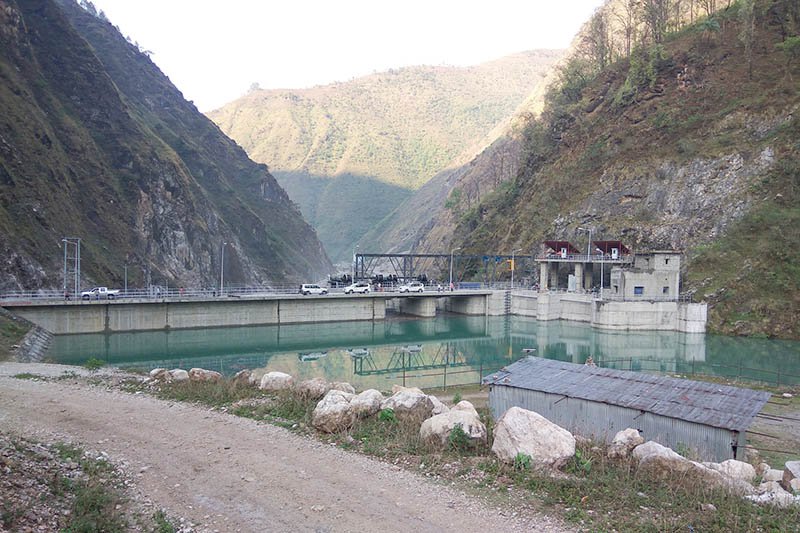
The slogan 'Everesting Friendship - Korea-Nepal 50th Anniversary' combines 'Mt. Everest,' representing Nepal, with the word 'Everlasting' to promote the eternal friendship and partnership between the two countries.
The book contains success stories of 26 Nepali returnees who established their businesses in Nepal with the skills learned from the Republic of Korea. These skills were acquired through various programs, such as the Employment Permit System (EPS).
The book is a collection of success stories from 7 Nepali returnees in the manufacturing sector, 6 in the agriculture sector, 8 in the service sector, and 5 in the education sector. The Embassy believes that this will inspire and encourage more Nepali Returnees from South Korea.
Ambassador’s Remark
Nepal and South Korea have established cordial relations with steady growth in exchanges of mutual cooperation in multiple areas, including the economy, infrastructure, development, and employment since the establishment of diplomatic ties.
Park Tae-Young, ambassador to Republic of Korea to Nepal, spoke at the launch of the 50th-anniversary logo and slogan commemorating the diplomatic ties between the Republic of Korea and Nepal. He also spoke at the launch of a book about the inspiring success stories of businessmen who returned to Nepal to start their own businesses after working in Korea.
The ambassador stated that this milestone represents a shared history and a strong bond between the two countries.
He reflected on the past five decades and expressed pride in the progress achieved through friendship, understanding, and collaboration.
The journey of the last 50 years is a story of shared values, mutual respect, and a commitment to building a better future for our people,” ambassador in his statement.
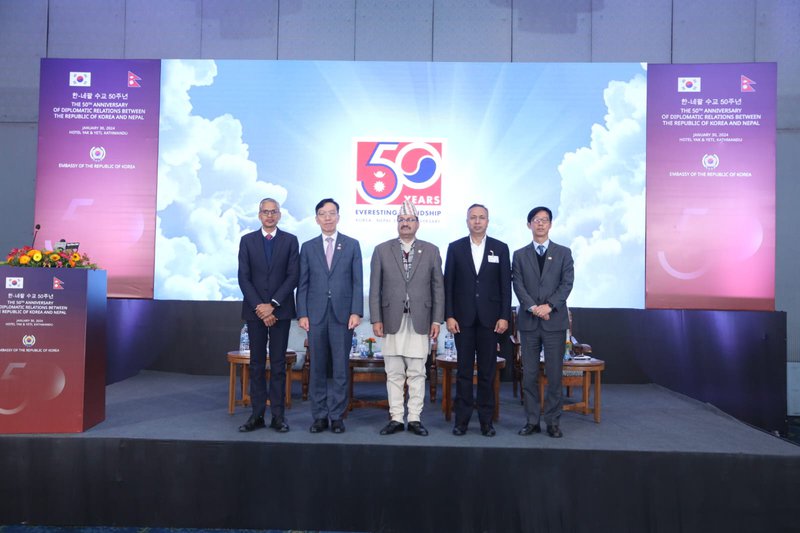
The emblem is a symbol of the enduring friendship between our nations as well as collaborative efforts of the Ministry of Foreign Affairs, Government of Nepal and our Embassy in shaping a meaningful representation of this significant milestone. Today, as we unveil the result of cooperation between the Ministry and the Embassy, we can witness the strong bonds that have flourished over the past five decades.
As we celebrate this golden anniversary, we must also look ahead to the future. Our diplomatic ties have endured the test of time. Now, more than ever, it is crucial for us to strengthen our cooperation for the challenges and opportunities that lie ahead. The global landscape is constantly changing, and by deepening our collaboration, we can navigate these changes together with resilience and solidity,” said Ambassador Park Tae-Young of Korea to Nepal.
Ambassador Park Tae-Young said, "Let us envision a future where our nations continue to grow and prosper together. May the spirit of friendship and cooperation guide us in creating a world of shared prosperity, peace, and mutual understanding."
Ambassador Park Tae-Young expressed his hope for even greater achievements and closer collaboration between Korea and Nepal in the next 50 years. There are many opportunities for this to happen.

Keshab Poudel
Poudel is the editor of New Spotlight Magazine.
- ERC Nepal Is Focused On Expanding Distribution And Transmission To The Private Sector: ERC Chair Dr. Dhital
- Jul 06, 2025
- FOURTH PROFESSOR Y.N. KHANAL LECTURE: Nepal-China Relations
- Jun 23, 2025
- Colonel JP CROSS: Centenary Birthday
- Jun 23, 2025
- BEEN: Retrofitted For Green
- May 28, 2025
- GGGI has been promoting green growth in Nepal for a decade: Dr. Malle Fofana
- May 21, 2025








